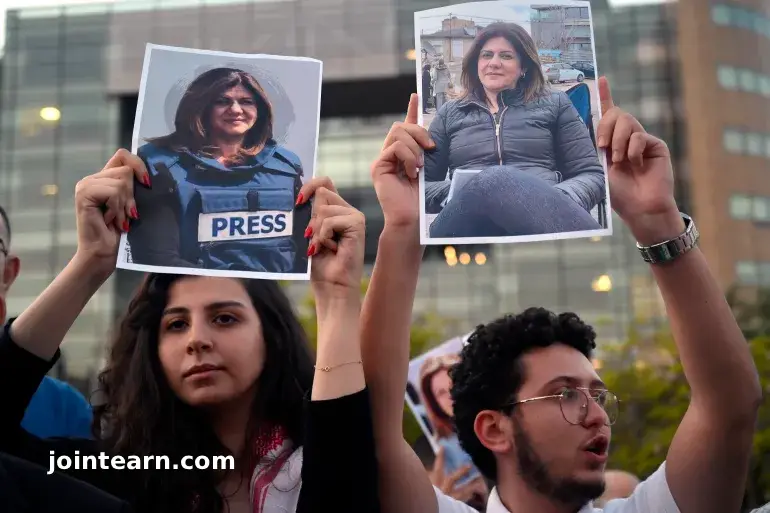
A former United States Army colonel has accused the administration of former President Joe Biden of softening a report on the killing of Al Jazeera journalist and US citizen Shireen Abu Akleh, suggesting that key evidence pointing to an intentional Israeli shooting was deliberately downplayed to protect Israel.
In an explosive interview with The New York Times, Colonel Steve Gabavics, who served at the Office of the United States Security Coordinator (USSC), said he was “flabbergasted” by the final US government statement that described Abu Akleh’s 2022 death as a “tragic accident.”
Gabavics, who left government service in January, claimed that the State Department’s summary of the interagency report “ignored or softened” findings suggesting the Israeli soldier who fired the fatal shot knew he was targeting a journalist.
Colonel: US Report Diluted Evidence of Intentional Killing
The Biden administration tasked the USSC — led by Lieutenant General Michael R. Fenzel — to review investigations by both Israeli and Palestinian authorities and provide a consolidated assessment. That report directly informed the State Department’s only official statement on the case, which said there was “no reason to believe” Abu Akleh was intentionally targeted.
Gabavics, however, told the Times that he and several colleagues strongly disagreed with the official line. “The government’s watered-down account continued to be on my conscience nonstop,” he said, adding that evidence gathered on-site and through ballistic analysis made it highly unlikely that Abu Akleh’s killing was accidental.
He argued that the precision of the gunfire, the sequence of shots, and Israeli military radio traffic all pointed to an intentional act. “The soldier would have known he was firing at journalists,” he said.
Eyewitness and Forensic Evidence Supports Intentionality
Abu Akleh, a veteran Palestinian-American reporter for Al Jazeera, was shot in the head on May 11, 2022, while covering an Israeli military raid in Jenin refugee camp, located in the occupied West Bank. At the time, she was wearing a blue press vest and helmet, clearly identifying her as a member of the media.
Multiple independent investigations — including those by the United Nations, human rights groups, and media outlets such as Al Jazeera and CNN — found that Israeli soldiers fired deliberately toward the group of journalists, despite no evidence of gunfire from the Palestinian side.
Gabavics said Israeli military radio communications indicated that soldiers were aware journalists were present. “An Israeli vehicle was parked within clear view through a sniper scope,” he said. “The notion that it was an accident defies logic.”
He described the shot pattern as deliberate: “The soldier shot at a producer, then at Abu Akleh, then at another person who tried to help her — that’s not random gunfire.”
‘Favouritism Is Always Toward the Israelis’
Gabavics said he raised his conclusions verbally and in writing to General Fenzel, but they were omitted from the final report sent to the State Department. Shortly after, he claimed, he was sidelined from further review work.
General Fenzel defended the process, saying he made judgments “based on the full set of facts and information available” and that he “stood by the integrity” of the team’s conclusions.
Still, Gabavics said his experience confirmed a deep US bias in favor of Israel, particularly within the security coordination office. “The favoritism is always toward the Israelis. Very little goes to the Palestinians,” he said.
The United States provides Israel with billions of dollars in annual military aid, support that has expanded amid ongoing conflict in Gaza. Critics argue that this financial and diplomatic backing creates a conflict of interest that undermines American credibility in investigating human rights violations.
Ongoing Pressure for Accountability
The FBI opened its own investigation into Abu Akleh’s killing in 2022, but its status remains unclear. The Biden administration has faced sustained criticism from press freedom groups, Palestinian officials, and Abu Akleh’s family for failing to hold Israel accountable.
Israel later admitted that an Israeli soldier “likely” shot Abu Akleh, calling it an accident and announcing that no disciplinary action would be taken. The decision drew international outrage and renewed calls for an independent investigation.
For Gabavics, the episode remains the most haunting of his career. “Because we had everything there,” he said. “All the evidence was in front of us — and yet, the truth was diluted.”


Leave a Reply